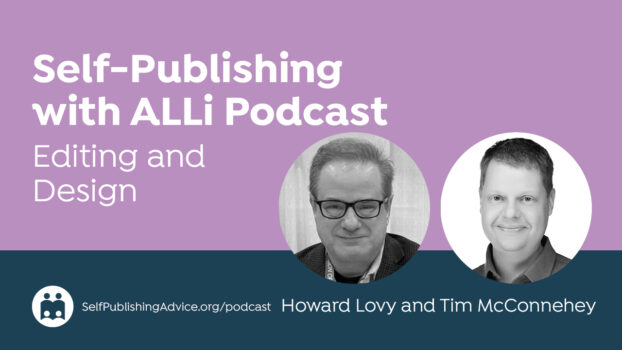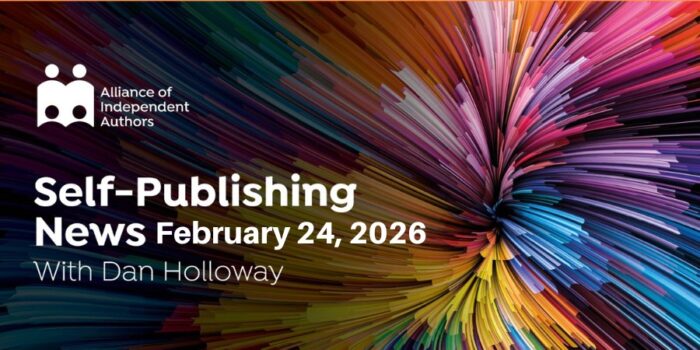We're ‘indies', right? Indie authors?
Most of us have embraced the term and have some idea what we mean by the concept. But there's a lot of confusion out there, with people using the term ‘indie' interchangeably with ‘self-publisher', and people meaning wildly different things when they use those words.
Here at The Alliance of Independent Authors we gave great thought to terminology when we were setting up. Were we going to be an alliance of self-publishers or independent authors? What was the difference, anyway?
Here are the conclusions we came to:
- Indie authorship and self-publishing are not quite synonymous but an independent author will have self-published at least one book.
- Going ‘indie' is, more than anything, an attitude of mind.
- ‘Indie' does not necessarily mean ‘self-publishing only' and even the most indie-spirited self-publisher works in collaboration with other publishing professionals (editors, designers, distributors) to produce a good book and reach readers.
- Indies are open to mutual beneficial partnerships, including trade publishing deals where appropriat, so long as the author's status as creative director of the book is acknowledged.
- Indie authors expect this equal partnership model to be reflected in contracts and terms, not just lip service.
- Because it involves us in every part of the process, self-publishing is the most creative choice a writer can make, and very empowering.
- It does, however, require the writer to develop a variety of skills and aptitudes and keep up with a demanding and fast-changing environment. It is thus best suited to writers of an entrepreneurial bent.
- The shift from the author as resource (in the new parlance ‘content provider') to author creative director of a book, from conception to completion and beyond, is revolutionary and is prompting trade (nonwriting) publishers to rethink what they do and how they do it.
- All of this is very good for writers. And what is good for writers can only be good for readers.
- Self-publishers are central to a revolutionary shift in publishing which is moving from seeing the author as resource (in the new parlance ‘content provider') to respecting the author as creative director.
- Self-publishers are now proud of the indie label, which they carry into all ventures, negotiations and collaborations for their own benefit and to the benefit of all writers.
That's how we see it. What do you think? Are you an indie? A self-publisher? What do those terms mean to you?




Dear Orna
I’m from Kolkata , INDIA.I’ve been wondering what is “indie ” At 71 I naturally surmised it means Indian !!!!!!
I am a self published author of short stories in English. I would like to know whether readers would understand the setting and situations of an Indian joint family in Bengal a Century ago.
Your information as well reader’s comments have been very helpful .I just have a small suggestion . For me a Senior Citizen from India your entry fee is very steep for me 10 pounds in India is Rs.1000/
Thank you once again. Am really eager to participate in the short story competition
Call us with any urgent glazing problem, we can help!
Thank you Alli for all the great information on this site! My situation is a bit unusual. I have been asked to write a children’s book about a wonderful pony who recently passed. In his nearly 40 years he taught many young riders — some who have gone on to big careers in the horse world. He is basically a legend in this part of Pennsylvania. I want to write it to a rather specific audience and don’t expect to sell it on the mass market. There will be numerous illustrations. Any ideas would be much appreciated.
[…] indie author in a world that asked me for studying as a computer scientist to discover that actually I’m a […]
[…] a good book to read is a painstaking process. With the rise of Indie authors it has become difficult to know for sure whether a book is good or not. But what gave rise to all […]
This is awesome! 😀
Great post, Orna, and definitely a lot to think about. As someone who is on the verge of ‘going Indie’, one of the things that is enticing me closer to the edge, so to speak, is the entrepreneurial aspect. I like the idea of the challenge, but at the same time, it is tricky to take that first step too, knowing that a “Yes” to the dream of traditional publishing could also just be around the corner. Hmmm, as I said, lots to be thinking about!
What are your thoughts about indie authors in the field of MG/YA fiction? Could you recommend any writers that you think do a particularly good job in this area?
First of all, great post. This discussion comes up frequently. According to Google, the definition of independent reads: “Free from outside control; not depending on another’s authority.” Although I do not make my living as a writer, what I produce comes from whatever idea(s) floats through my brain, in whatever manner I decide to produce it. I think that the creative side, the actual writing itself, is where this freedom is most important. How the book gets into the hands of the readers is less important, IMNSHO, than how it was created in the first place. If an editor suggests changes to improve a book, that’s fine tuning the creative process (and incredibly necessary). If a publisher is wanting to make changes to fit “our catalog” or “that’s what’s hot right how” then the element of independence is diluted. I agree, SP allows for the greatest creative freedom, but there is a price. The more time an author spends on the publishing and marketing aspects, the less time they have to write. Each of us has to find the balance that works for our own unique situation.
Excellent post, Orna. You nailed it.
Indie for me is definitely a state of mind, but it’s also a business model. It may be politically inexpedient to say so, but there is a difference between writing as a career and writing as a hobby. The difference is not about talent. There are many incredibly talented writers out there who haven’t quit their day job. But a writing career is a combination of talent, craft skill, thousands of hours of work (a lot of which is tedium, not creative), persistence, patience, sheer gritty determination, a modicum of audacity, the right opportunities and a certain amount of luck — not necessarily in that order.
My dad used to say “Luck is preparedness meeting opportunity,” so for many of us who’d been whacking away at the banana stalks for decades already, the ebook/self-pub revolution is the opportunity of a lifetime. Many semi-pros who never got past the established gatekeepers paved the way for us, and I, for one, am humbly grateful. Authors in the corporate world are foolish if they fail to watch and learn from self-publishing pioneers.
I consider myself extremely lucky to have had a relatively successful writing career (more than a dozen books in 15+ years) in the corporate publishing world, but in that realm, I am somewhat at the mercy of agents and editors whose goals and values aren’t always the same as mine. And that sucks at times. Yesterday, I was reminded of this quote from the late great Ray Bradbury: “Every day of my life I’ve worked only for myself and for the joy that comes from writing and creating.” I can honestly say that is true for me since I started indie publishing.
‘Alt’ is another interesting term — one I haven’t given enough thought to — it seems ideal for the sort of radical, boundary pushing work you’re talking about Dan, as ‘indie’ moves mainstream. I do hope that move won’t see too many self-publishing authors replicating the mistakes that have proved so problematic for trade publishing and allowing themselves to be bullied by the bottom line. If indie spirit means anything, it must surely be creative imperatives at the wheel and commerce in the passenger seat.
For me, indie is about the creative direction and spirit of creative ownership you mention. A little over a year ago I wrote a piece (http://www.selfpublishingreview.com/2011/04/so-when-did-the-indie-success-stories-become-our-success-stories/) about the way the word indie had remained constant whilst its general usage had changed over the previous two years or so. I think we’ve pretty much hit the high point of that usage change with current media coverage and I sense an increasing grass roots pressure to stop talking about the means of production and refocus the discussion where it had been – on content. The point I made then was that in all the talk of indie success those of us who’d been calling ourselves indie back before a single Kindle had been pressed into active service felt very little if any of that success – to us, indie had been about pushing boundaries and breaking rules (it was about not having to worry about house style and what you did with your grammar and spelling so the recent groundswell of “indies do it just as professionally as the pros” has left many of us not only mortified but scratching our heads!) and crossing genres and writing things that were of uncommercial length, about uncommercial subjects, quite possibly hopping from the second person to the first person plural. When we read all these stories about indie success there was a tendency to feel like an impoverished electorate being told they’d never had it so good. So I don’t really know how I see myself any more. Self-publisher certainly. Very supportive of many in the indie movement, if probably closer to alt than indie these days myself – and particularly encouraged by places like this and other little groundswells that suggest the conversation is moving back from much of the hype to a creatively as well as a commercially interesting place
Orna, thanks for this post. Really appreciated your description, “determined self-publisher.” For me indie is all about creative content, with the emphasis on content creation, then enjoying the deep satisfaction in handling the subsequent production and marketing aspects of the work I have created.
Dan, your comments are perceptive, and I very much liked your sense of indie and alt. How do I really see myself these days? First and foremost as someone who creates a work, and then undertakes to put it out into the world in the best way I can. This way is not fixed, but an evolving process that responds and changes according to what is necessary at a certain time for a particular project. I think we will be seeing more and more unusual interpretations of this process as each of us discovers what works best.
As Joni points out, indie is also a business model in that an indie seeks livelihood through publishing created works. And this does indeed differentiate someone who puts out a little book for family and friends (quite common here in Japan) and someone who puts out a work because it is also a way harness creative talents economically.
Having become an independent publisher in Japan, indie is an ongoing process for me and it has been interesting for me to see what works and what doesn’t. What is clear so far is that indie means total involvement in what you have created – it is complete commitment to your work, which means you begin engaging all sorts of other talents and abilities. Some of these you will express well, others you won’t, and that’s where collaboration enters.
Thanks for the great discussion here – from the foot of Mount Fuji, Catrien Ross.